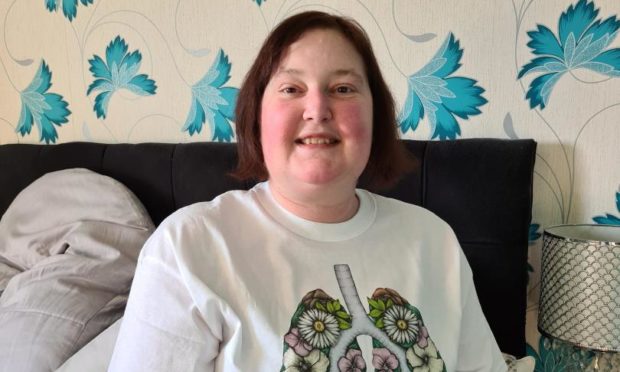After receiving a double lung transplant, Paula Massie was able to take a deep breath for the first time in a decade.
The 40-year-old, from Peterhead, is urging people to pay attention ahead of the rules on organ donation changing.
From Friday, the Scottish system will move from opt-in to opt-out – meaning it will be assumed everyone older than 16 has agreed to donate, unless they have stated otherwise or are part of an exempt group.
Family members will still be asked for the potential donor’s latest views, to see if they may have changed their minds.
But health bosses say recording a decision on the NHS Organ Donor Register is the best way to make the process easier for their loved ones.
Paula’s story
In 2009, Paula Massie was diagnosed with pulmonary hypertension, a type of high blood pressure which affects the lungs.
It is thought just 7,000 people across the UK have the condition.
But after suffering from symptoms including tiredness and shortness of breath for a decade, Mrs Massie received a life-changing double lung transplant.
She said: “The recovery process has been tough, I was in hospital for three months, but every day I’ve seen an improvement from my condition before the transplant.
“After going through something like this, you really appreciate the simple things in life like just being around and able to spend time with your family.
“I’ve also been able to walk again for pleasure, which has been amazing.
“I wrote to my donor’s family to say thank you, but it’s never enough.
“They’ve changed my life, it’s such a huge gift.
“I wake up every day glad that someone has given me this gift of life, and there’s no way I can ever repay them.”
‘Talk to your family’
In Scotland, there is an average of more than 500 people waiting for an organ transplant at any one time.
Additionally, only 1% of people die in circumstances where organ donation is feasible, and usually involves dying in intensive care.
While anyone who has not recorded an official decision will be considered for donation, the rule changes do not mean they will automatically be placed on the register.
Exemptions have been laid out for adults without capacity to understand the move, adults who have lived in Scotland for less than a year, and under-16s.
They will only be able to donate their organs if they, or someone on their behalf, explicitly authorises it.
Mrs Massie added: “Organ and tissue donation is still something people find really difficult to talk about, and I hope the law change encourages people to talk about their decision with their family.
“If your family aren’t sure of your wishes, it might make a difficult time even harder.
“I really hope that the law change will encourage people to have that conversation.”
Public Health Minister Mairi Gougeon said: “The law is changing to help save and improve lives.
“We want everyone in Scotland to understand what this change means for them.
“Donation remains a personal decision and we’re encouraging people to make the choice that’s right for them – whether that’s to be a donor or not.
“Under the opt out system, families of potential donors will always be consulted to check what their loved one’s latest views on donation were.
“So, whatever you decide, as well as recording it on the NHS Organ Donor Register you should also tell those close to you about your donation decision to help ensure that it is honoured.”
For more information or to record an organ donation decision, visit organdonationscotland.org or call 0300 303 2094.
